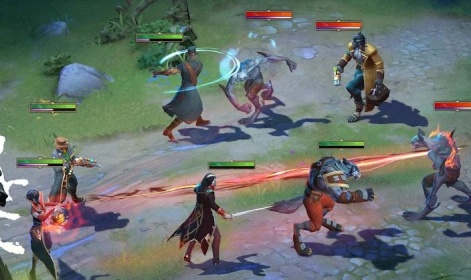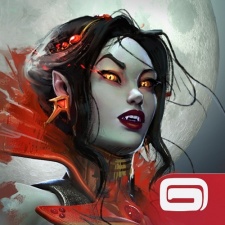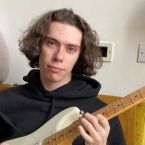No matter the size of the game or how long it ultimately takes to make, each new title involves a lot of hard work, tough decisions, and a little bit of luck before it even gets out the door and onto devices.
And that's only the first step to making the title succeed.
To highlight the extensive work that goes unseen in the background, PocketGamer.biz is reaching out to developers to learn more about the process of releasing a video game, with our 'Making Of' series.
This week, we spoke with Gameloft game manager Damian Damianov about how Heroes of the Dark is a game all about the players and the difficulty in making a hybrid video game.
PocketGamer.biz: Where did the initial idea for Heroes of the Dark come from?
Damian Damianov: Funnily enough, the original idea for a 4X game about vampires, albeit in a different shape and form, was conceived in Transylvania, at Gameloft Cluj.
Although that team took on a different project instead, a strike force of their super talented artists found their way onto Heroes of the Dark, and have contributed a sizable part of the most beautiful art you see in the game today.
Heroes of the Dark is Gameloft Sofia’s fifth strategy game. A high production value, bold, disruptive take on the strategy category, and a brand new IP, it’s possibly our most ambitious and challenging product yet.
Heroes of the Dark is a bold, disruptive take on the strategy category.Damian Damianov
The concept is a unique blend of strategy and RPG DNA, combining brand new ideas, key learnings from previous projects, market research, and of course, mechanics and paradigms we ourselves love and appreciate as players.
How long did development take, and how many people worked on the game?
Core development took around two years. A serious amount of ideation, worldbuilding, visual development and market research took place beforehand, and in parallel, the engineering team laid down the foundations of our future persistent online world.
Today we’ve got over 65 people across art, design, engineering, product, production, UX, narrative, user acquisition, marketing, audio and QA.

Although most of them are based in Sofia, we’re very fortunate to be able to tap into Gameloft’s global talent pool, and our team is distributed across different studios, countries, and even continents.
What was the biggest challenge you had to overcome during development?
We knew from day one that the bold, ambitious strategy RPG hybrid we set out to build comes with significant risk. Building a brand new IP with a strong identity, a persistent, real-time-3D, server-authoritative world, are all pretty high on the complexity scale, but what’s kept me awake at night the most, is the unique and hybrid nature of the product.
Hybrids are tricky. A very fine line between the best and worst of both worlds. One misstep and you end up with a confusing mess of incompatible ingredients, a niche product for no one. Scary!
What’s kept me awake at night the most, is the unique and hybrid nature of the product.Damian Damianov
With that in mind, we stayed extra vigilant throughout the process. We built out the riskier parts first so we can prove out the formula, and allow time to pivot if necessary. Conducted a ton of research on the high concept, art style and setting, and we put every major milestone build through a lot of playtesting.
At what stage in development did you feel you had a game that you were happy with?
It’s been an incremental process of improving sentiment in user testing, internally within the team, and for the senior editorial team at Gameloft HQ.
We focused disproportionately on the core gameplay and fun factor. As guided by our user research team, before measuring whether the game is fun or not, we had to ensure players ‘get’ it. Once usability clicked, we were able to focus on actual enjoyment, and when the first 10/10 ratings came in, we knew the game’s got a chance.
How happy are you with the game's launch so far?
Pretty happy. We’ve seen a lot more organic interest than anticipated, we’ve had zero outages, and we’re seeing a passionate community form inside the game.
Most importantly, being live has presented us with multiple quantitative data points which, combined with player feedback and user research, have been invaluable to us for making massive improvements to the ecosystem.
How are you approaching live ops?
4X games are sandbox experiences, and delivering exciting new gameplay and flavour to players on a regular basis is absolutely critical for strong engagement.
Having operated live games for more than 10 years, we have an arsenal of live ops frameworks and tools that allow us to run live events, update assets, push out balancing improvements, and deploy new offers on very short turnaround times.
We usually build out our live-ops calendar to bi-weekly cycles, but stay reactive throughout, deploying improvements and optimisations as often as a few times a week.
What can you tell us about your plans in terms of updates?
We’ve got a backlog of over 100 features and quality of life improvements we’d like to introduce, but at the end of the day, it’s all about the players.
We built Heroes of the Dark for them, and their feedback, either direct or through their actions and engagement in-game, is instrumental to how we define our priorities. Deep and meaningful social gameplay is always at the top of the list, and Raid Bosses may be on the way, who knows?
What in-game events are you planning in the future for Heroes of the Dark?
All of them!
We’ve got a robust and flexible framework that we’re constantly expandingDamian Damianov
Joking aside, we’re going live this Halloween, and while the whole game is Halloween-themed by definition, we’ve got a full chain of Halloween events slated, including brand new content, bad-ass new heroes, and a bunch of surprises to welcome all of our new players into the world of Tenebris.
Beyond that, we’ve got a robust and flexible framework that we’re constantly expanding so we can continue to introduce exciting new events.
What can you tell us about your future mobile projects?
There are some mindblowing products in the works, and while I can’t get into specifics today, keep an eye on the big & established platforms, but also up-and-coming cutting edge hardware, platforms and business models.
You can pre-register for Heroes of the Dark on Google Play now.






















